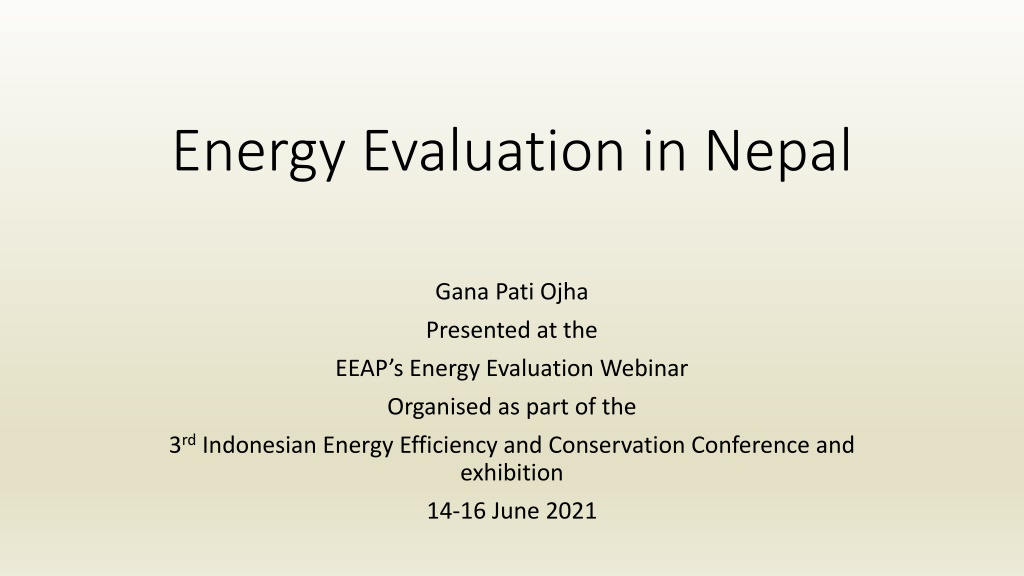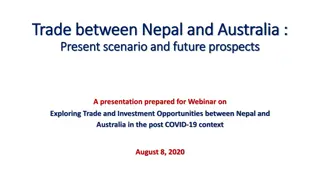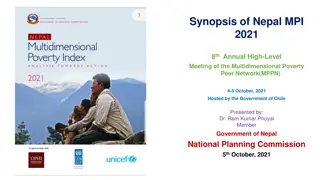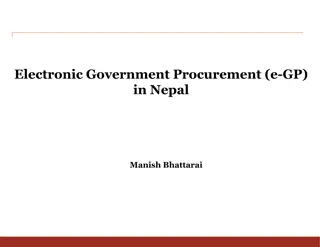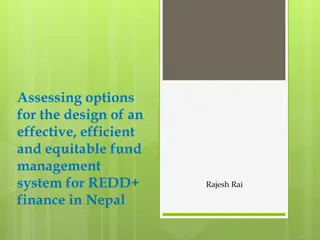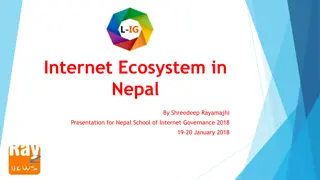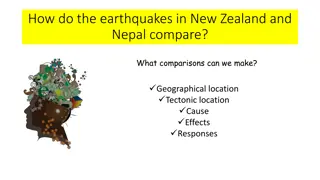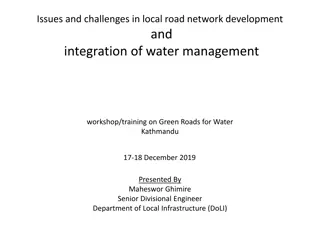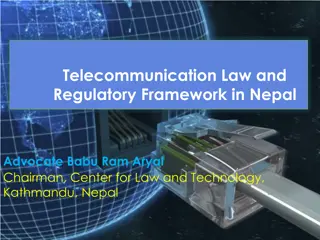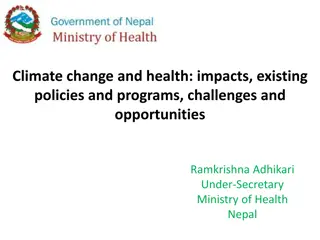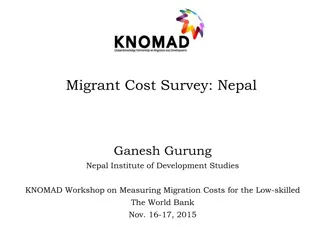Energy Evaluation in Nepal: Government's Role and Policy Framework
Nepal emphasizes clean energy for sustainable development, with a focus on hydropower generation and climate change mitigation. Evaluation of energy policies and procedures is crucial, with a strong emphasis on monitoring and limited work on evaluation. The country is preparing to raise its voice on climate change issues in international forums and COP 26. Communication of evaluation outcomes is done through various channels, including workshops and online repositories.
Download Presentation

Please find below an Image/Link to download the presentation.
The content on the website is provided AS IS for your information and personal use only. It may not be sold, licensed, or shared on other websites without obtaining consent from the author. Download presentation by click this link. If you encounter any issues during the download, it is possible that the publisher has removed the file from their server.
E N D
Presentation Transcript
Energy Evaluation in Nepal Gana Pati Ojha Presented at the EEAP s Energy Evaluation Webinar Organised as part of the 3rdIndonesian Energy Efficiency and Conservation Conference and exhibition 14-16 June 2021
Nepal government's viewpoints on the role of energy in sustainable development and in meeting the climate change mitigation Clean energy viewed as an engine for economic growth, economic transformation and SDG achievement High potential for hydropower generation Only a small portion generated, even not enough for domestic consumption during winter season Alternate energy: micro hydro, improved stoves, improved water mills and biogas In the process of trading 9 tons carbon credit Strong voice for mitigating climate change effect in international forums Preparing to raise strong voice in the COP 26 (Nov 1-12) on loss and damage and claiming its share of Climate Fund
Evaluation of energy policies Evaluation of energy policies GoN emphasis: Energy and Evaluation Evaluation in the Constitution of Nepal M&E Management Bill Every sector has M&E Good M&E framework in energy sector since 2014 in place Emphasis on Monitoring, little work on Evaluation Earlier limited to Cost-benefit analysis Use of OECD/DAC criteria since 2010 Value for money Multi-criteria analysis (technical and economic and impact on environment-natural and social) Before-after; very rare by using before-after and with-without
Evaluation procedure Evaluation procedure Use DAC criteria as per new definition Defined these well in M&E Management Bill and new guidelines Pay special attention to the cross-cutting issues related to environment, social equity, gender equality, human rights, and SDGs Contribution analysis as energy evaluation takes place in a complex context Women empowerment might be the impact of several variables from different programs
Communicating the outcomes of evaluation Communicating the outcomes of evaluation Placing evaluation reports on the websites by NPC, UN systems Evaluation repository Dissemination workshops Sharing through emails to relevant stakeholders Sharing printed copies to limited number of stakeholders Media rarely used for dissemination
